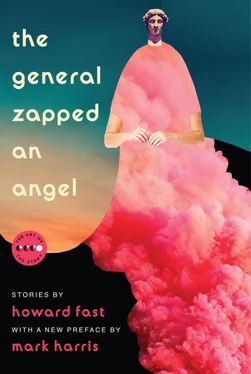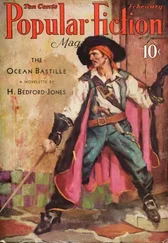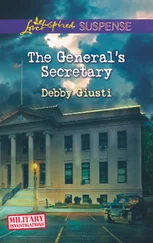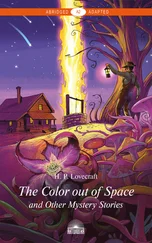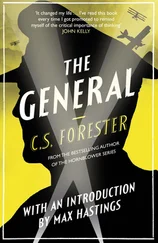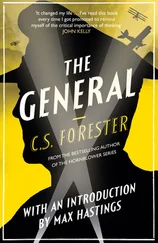As much as the space people, he was a stranger to the curious ways of mankind, and he listened to them speculate on the mindless, haphazard mixture of joy and horror that was mankind’s civilization on the planet Earth.
Then, when their mission was almost completed, the mouse chose to ask them about their own place. He was able to weigh facts now and to measure possibilities and to grapple with uncertainties and to create his own abstractions; and so he thought, on one of those evenings when the warmth of the five little creatures filled the spaceship, when they sat and mingled thoughts and reactions in an interlocking of body and mind of which the mouse was a part, about the place where they had been born.
“Is it very beautiful?” the mouse asked.
“It’s a good place. Beautiful—and filled with music.”
“You have no wars?”
“No.”
“And no one kills for the pleasure of killing?”
“No.”
“And your animals—things like myself?”
“They exist in their own ecology. We don’t disturb it, and we don’t kill them. We grow and we make the food we eat.”
“And are there crimes like here—murder and assault and robbery?”
“Almost never.”
And so it went, question and answer, while the mouse lay there in front of them, his strangely shaped head between his paws, his eyes fixed on the two men and the two women with worship and love; and then it came as he asked them:
“Will I be allowed to live with you—with the four of you? Perhaps to go on other missions with you? Your people are never cruel. You won’t place me with the animals. You’ll let me be with the people, won’t you?”
They didn’t answer. The mouse tried to reach into their minds, but he was still like a little child when it came to the game of telepathy, and their minds were shielded.
“Why?”
Still no response.
“Why?” he pleaded.
Then, from one of the women. “We were going to tell you. Not tonight, but soon. Now we must tell you. You can’t come with us.”
“Why?”
“For the plainest of reasons, dear friend. We are going home.”
“Then let me go home with you. It’s my home too—the beginning of all my thoughts and dreams and hope.”
“We can’t.”
“Why?” the mouse pleaded. “Why?”
“Don’t you understand? Our planet is the size of your planet Jupiter here in the solar system. That is why we were so small in earth terms—because our very atomic structure is different from yours. By the measure of weight they use here on earth, I weigh almost a hundred kilograms, and you weigh less than an eighth of a kilogram, and yet we are almost the same size. If we were to bring you to our planet, you would die the moment we reached its gravitational pull. You would be crushed so completely that all semblance of form in you would disappear. You can’t ask us to destroy you.”
“But you’re so wise,” the mouse protested. “You can do almost anything. Change me. Make me like yourselves.”
“By your standards we’re wise—” The space people were full of sadness. It permeated the room, and the mouse felt its desolation. “By our own standards we have precious little wisdom. We can’t make you like us. That is beyond any power we might dream of. We can’t even undo what we have done, and now we realize what we have done.”
“And what will you do with me?”
“The only thing we can do. Leave you here.”
“Oh, no.” The thought was a cry of agony.
“What else can we do?”
“Don’t leave me here,” the mouse begged them. “Anything—but don’t leave me here. Let me make the journey with you, and then if I have to die I will die.”
“There is no journey as you see it,” they explained. “Space is not an area for us. We can’t make it comprehensible to you, only to tell you that it is an illusion. When we rise out of the earth’s atmosphere, we slip into a fold of space and emerge in our own planetary system. So it would not be a journey that you would make with us—only a step to your death.”
“Then let me die with you,” the mouse pleaded.
“No—you ask us to kill you. We can’t.”
“Yet you made me.”
“We changed you. We made you grow in a certain way.”
“Did I ask you to? Did you ask me whether I wanted to be like this?”
“God help us, we didn’t.”
“Then what am I to do?”
“Live. That’s all we can say. You must live.”
“How? How can I live? A mouse hides in the grass and knows only two things—fear and hunger. It doesn’t even know that it is, and of the vast lunatic world that surrounds it, it knows nothing. But you gave me the knowledge—”
“And we also gave you the means to defend yourself, so that you can live without fear.”
“Why? Why should I live? Don’t you understand that?”
“Because life is good and beautiful—and in itself the answer to all things.”
“For me?” The mouse looked at them and begged them to look at him. “What do you see? I am a mouse. In all this world there is no other creature like myself. Shall I go back to the mice?”
“Perhaps.”
“And discuss philosophy with them? And open my mind to them? Or should I have intercourse with those poor, damned mindless creatures? What am I to do? You are wise. Tell me. Shall I be the stallion of the mouse world? Shall I store up riches in roots and bulbs? Tell me, tell me,” he pleaded.
“We will talk about it again,” the space people said. “Be with yourself for a while, and don’t be afraid.”
Then the mouse lay with his head between his paws and he thought about the way things were. And when the space people asked him where he wanted to be, he told them:
“Where you found me.”
So once again the saucer settled by night into the back yard of the surburban split-level house. Once again the air lock opened, and this time a mouse emerged. The mouse stood there, and the saucer rose out of the swirling dead leaves and spun away, a fleck of gold losing itself in the night. And the mouse stood there, facing its own eternity.
A cat, awakened by the movement among the leaves, came toward the mouse and then halted a few inches away when the tiny animal did not flee. The cat reached out a paw, and then the paw stopped. The cat struggled for control of its own body and then it fled, and still the mouse stood motionless. Then the mouse smelled the air, oriented himself, and moved to the mouth of an old mole tunnel. From down below, from deep in the tunnel, came the warm, musky odor of mice. The mouse went down through the tunnel to the nest, where a male and a female mouse crouched, and the mouse probed into their minds and found fear and hunger.
The mouse ran from the tunnel up to the open air and stood there, sobbing and panting. He turned his head up to the sky and reached out with his mind—but what he tried to reach was already a hundred light-years away.
“Why? Why?” the mouse sobbed to himself. “They are so good, so wise—why did they do it to me?”
He then moved toward the house. He had become an adept at entering houses, and only a steel vault would have defied him. He found his point of entry and slipped into the cellar of the house. His night vision was good, and this combined with his keen sense of smell enabled him to move swiftly and at will.
Moving through the shifting web of strong odors that marked any habitation of people, he isolated the sharp smell of old cheese, and he moved across the floor and under a staircase to where a mousetrap had been set. It was a primitive thing, a stirrup of hard wire bent back against the tension of a coil spring and held with a tiny latch. The bit of cheese was on the latch, and the lightest touch on the cheese would spring the trap.
Читать дальше
